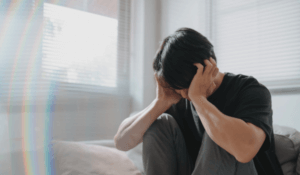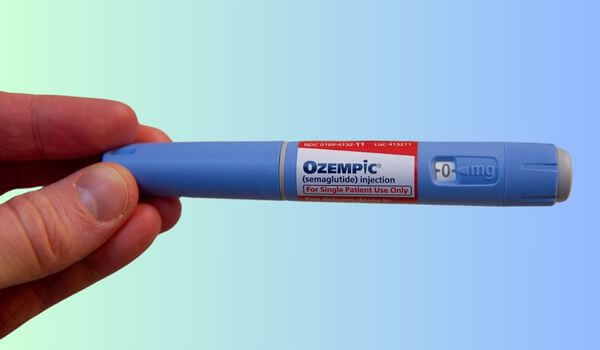
One important point needs to be kept in mind: although there can be many similarities between the symptoms of anxiety and depression, they are fundamentally different in both cause and effect. Anxiety and depression can co-exist in a person, and each condition needs to be recognized and treated appropriately. Read more about anxiety here.
Causes and Signs of Major Depressive Disorder
Clinical depression is a complex condition with various underlying factors that are not yet fully understood. What complicates the picture is that there is no simple test that doctors can perform, like a blood sample or X-ray, that will give a definitive diagnosis one way or the other.
What is known so far is that the major influences include genetic predispositions, biological imbalances, environmental influences, and psychological triggers.
The primary cause of most cases of clinical depression is biochemical abnormalities. These can be inherited or can be due to independent influences. Almost 50% of all people who are living with clinical depression have a genetic connection to a family member who has similar symptoms.
Some of the biological influences include chronic diseases such as diabetes and obesity. Endocrine disorders like thyroid, parathyroid, and adrenal disease and changes brought on by aging (primarily hormone-related changes like menopause) can all trigger clinical depression.
These biochemical imbalances usually result in disruptions in nerve signaling due to interference with key brain neurotransmitters, such as serotonin, norepinephrine, noradrenaline, and dopamine.
Common signs of depression encompass;
- Continuous feelings of sadness or emptiness
- Loss of pleasure in previously enjoyable activities
- Changes in appetite and weight
- Disturbances in sleep patterns (insomnia or oversleeping)
- Fatigue or decreased energy levels
- Feelings of worthlessness or extreme guilt
- Neglect of personal appearance and hygiene
- Challenges with focus, decision-making, memory, or clear thinking
- Recurring thoughts about death or suicide.
What are the recognized types of depression?
Depression can take on diverse forms:
- Mild or moderate depression: less severe but still with a direct impact on daily life.
- Major depressive disorder: severe and persistent symptoms that significantly impair daily functioning.
- Persistent depressive disorder (dysthymia): chronic depression with less severe but long-lasting symptoms.
- Seasonal affective disorder (SAD): depression that occurs at certain times of the year, typically in winter.
- Postpartum depression: depression that occurs after childbirth.
Diagnosis of clinical depression
No clinical tests (blood samples, ultrasound, MRI, or X-ray) can produce a diagnosis. Diagnosing depression typically involves a comprehensive evaluation by a mental health professional. This process includes clinical interviews, physical examinations to rule out other medical conditions, and psychological assessments. The Diagnostic and Statistical Manual of Mental Disorders (DSM-5) outlines the criteria for diagnosing MDD, which include experiencing at least five specific symptoms for most of the day, nearly every day, for at least two weeks.
Treating mood disorders like depression often requires a multi-faceted approach, combining pharmacological, psychotherapeutic, and lifestyle interventions.
What are the available pharmacological treatment options for depression
Selective Serotonin Reuptake Inhibitors (SSRIs)
SSRIs are commonly prescribed for depression and anxiety. They work by increasing serotonin levels in the brain, which can improve mood, sleep patterns, and energy levels. Examples include fluoxetine (Prozac), escitalopram (Escitalopram), and sertraline (Zoloft). While SSRIs are generally safe, they can cause side effects such as nausea, insomnia, and headaches.
Serotonin Norepinephrine Reuptake Inhibitors (SNRIs)
SNRIs function by boosting the levels of serotonin and norepinephrine in the brain. They prove helpful for severe depression and specific anxiety conditions, and might also alleviate chronic pain. Examples include venlafaxine (Effexor) and duloxetine (Cymbalta). Common side effects consist of queasiness, dry mouth, and dizziness.
Atypical Antidepressants
These drugs don’t neatly fit into other categories but can be beneficial for treating depression. Examples include bupropion (Wellbutrin XL) and mirtazapine (Remeron/Zisprin). They often exhibit different side effects and mechanisms of action compared to SSRIs and SNRIs.
Tricyclic Antidepressants (TCAs)
These older types of antidepressants are effective but usually used as a last resort when other medications have not been successful due to their side effects and dietary limitations. Examples include amitriptyline (Elavil) and doxepin (Sineqan) for TCAs.
What are the psychotherapeutic treatment options for Major Depressive Disorder?
Cognitive Behavioral Therapy (CBT) is a form of talk therapy that assists individuals in recognizing and altering negative thought patterns and behaviors. It is highly successful in managing depression and can be administered one-on-one or in group settings.
Interpersonal Therapy (IPT) focuses on enhancing communication and relationships, aiding individuals in navigating social interactions more effectively. It proves particularly beneficial when addressing depression rooted in relationship challenges.
Psychodynamic Therapy delves into past experiences and emotions to shed light on present behaviors and feelings. Its goal is to uncover unresolved conflicts that might contribute to depressive symptoms.
Dialectical Behavior Therapy (DBT) merges CBT strategies with mindfulness techniques.
Problem-Solving Therapy equips individuals with practical skills to tackle life’s hurdles.
What are the brain stimulation treatment options for Major Depressive Disorder?
Brain Stimulation Therapies comprise Electroconvulsive Therapy (ECT), which administers electric currents to the brain under anesthesia, inducing changes in brain chemistry that swiftly alleviate severe depression symptoms. ECT is typically a last resort due to potential side effects like memory impairment.
Transcranial Magnetic Stimulation (TMS) uses magnetic fields to activate nerve cells in the brain, offering a non-invasive alternative when other treatments prove ineffective. The procedure involves positioning an electromagnetic coil on the scalp to emit magnetic pulses targeting specific brain regions.
Vagus Nerve Stimulation (VNS) entails implanting a device that delivers electrical impulses to stimulate the vagus nerve. It is commonly used for treatment-resistant depression.
What options are there for lifestyle changes and other therapies?
Establishing a consistent, healthy sleep routine is essential in managing depression or major depressive disorder. Good sleep habits involve going to bed and waking up at the same time daily, creating a calming bedtime ritual, and avoiding caffeine and screens before bed.
Healthy eating and physical activity
Maintaining a balanced diet and engaging in regular exercise can significantly impact mood and energy levels. Omega-3 fatty acids, found in fish and certain supplements, have been proven to enhance the effectiveness of antidepressant medications.
Mindfulness Practices and Meditation
Techniques like mindfulness meditation can help reduce stress levels and enhance overall well-being by focusing on being present “in the moment” while diminishing negative thought patterns.
Peer support groups
Connecting with individuals who can relate to your experiences can offer emotional support and practical guidance. Support groups, whether in person or online, create a sense of community and shared understanding.
Conclusion
Major depressive disorder is a complex yet generally manageable condition. A holistic approach combining medication, therapy, lifestyle adjustments, and alternative therapies can bring relief to many individuals.
If you or someone you’re close to is facing depression, it’s important to reach out to a mental health specialist for personalized treatment guidance. By exploring different treatment choices and collaborating with healthcare experts, those dealing with depression can access the assistance and tools required to cope with their situation effectively.
















